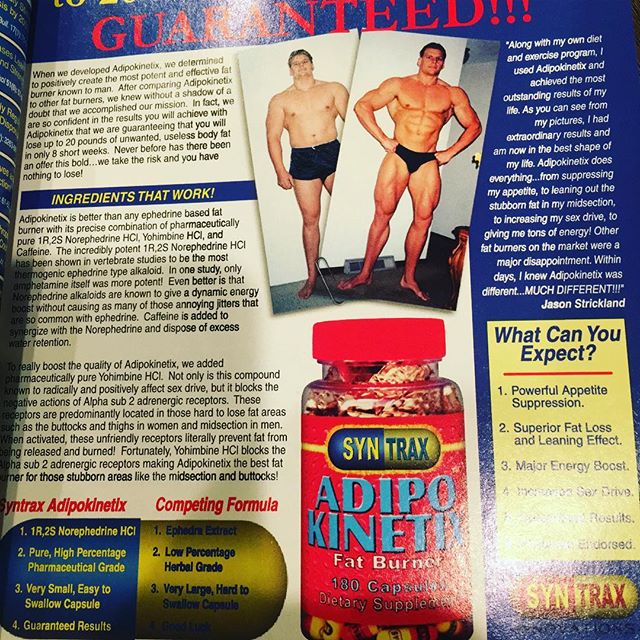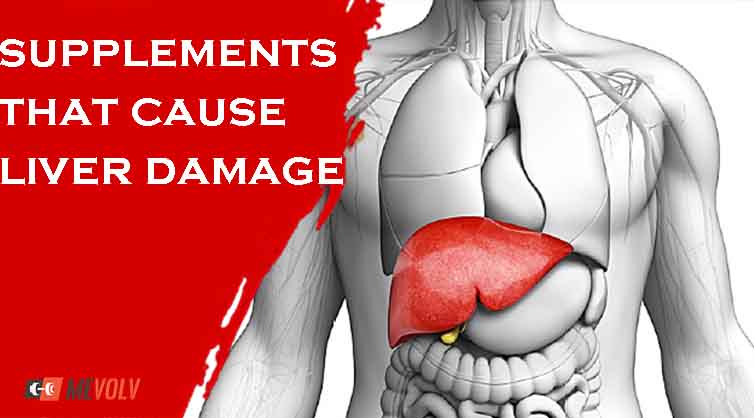You probably tried those weight loss supplements that are heavily advertised literally everywhere. It can be vitamins, minerals, or herbal plant extracts. All of these falls under the category of dietary supplements.
And believe me when I tell you, the dietary supplement market is a vague multi-billion dollar industry and has ZERO regulations.
After requesting data from the national registry, it shows that drugs or supplements cause 18% of liver injury cases use from 2003 till 2011.
Many brands failed their clients by giving them severe liver injury rather than weight loss. Lipokinetix brand is one of the most discussed cases of an OTC supplement that lead to liver failure.
This product was so hyped all over social media, magazines and almost everybody was sharing their success story with it.

If you read it’s ingredients, it consists of:
1) nor-ephedrine (also known as phenylpropanolamine or PPA)
2) caffeine
3) yohimbine
4) diiodothyronine
5) sodium usniate.
Table Of Contents
How and why can dietary supplements damage the liver?
Well here is what happened, seven users of Lipokinetix started to feel the following symptoms:
Abdominal pain, general fatigues and significant loss of appetite (1).
After conducting a blood test, it revealed severe liver damage.
The good news is, after several months under medical supervision and discounting the use of this fat burner (Lipokinetix), their liver tests returned to a healthy state.
Sadly, some users with other fat burners had permanent damage and required a liver transplant and now living well, but she has to take anti-rejection medication for the rest of her life so that her body can accept this new foreign liver (2).
Popular supplements led to liver failure:
The list is long with slimming aids and herbal medications associated with severe hepatotoxicity; however, here are examples of a few that are very common:
- Chaso
- Onshind, Sennomotounou (Japan)
- Green tea extracts (eg, Exolise [ArkoPharma-France])
- Kava
- Hydroxycut (Iovate, Canada)
- The Right Approach (Pharmanex-USA)
- LipoKinetix (Syntrax, USA)
- Ma Hung; Pure usnic acid
- Kombucha mushroom; Teucrium chamaedrys (germander)
- Teucrium capitum;
- Teucrium polium (golden germander)
- Jin Bu Huan
- Germander
- Chaparral
- Shark cartilage
Why do they lead to liver damage?
Here are a few reasons why these so-called “herbal-based supplements” may cause liver damage:
1- Many products don’t disclose the exact ingredients in their products and call it: proprietary blend.
Although The FDA required all manufacturers to disclose all ingredients in the product label along with the exact amount of weight (mg). UNLESS the ingredients are part of a proprietary blend. Which is an incredibly high risk for anyone who wants a clear understanding of what they are consuming (3).
2- Can be dose-related. Which means the higher the dose, the more chance of liver damage occurrence. This can be very dynamic; merely an individual can be more sensitive to a dose than another. Too much vitamin A can cause liver damage, as can high doses of niacin (4).
3- Altering liver functions, and that’s exactly happening with lovastatin intake. It is mostly metabolized in the liver (via CYP 3A4), and metabolites are excreted in bile. Although some livers adapt to it, failure of adaptation can lead to liver failure (4).
4- Drug interaction, any drug can interact with another medication and result in a severe adverse event. For example, ginkgo biloba, which is an herbal product touted to improve memory, can react with ibuprofen(Motrin) to cause severe internal bleeding.
Why the FDA or any other organization do not regulate Dietary supplements?
It’s simple as long as the manufacturer doesn’t make guarantees or outrageous claim about their weight loss supplements, and doesn’t market it as a drug or food. They can easily skip the whole regulation process and straight away go the store shelves.
And most countries are dealing with the same issue regarding OTC products.
However, my point here is not to scare you away from buying weight loss supplements. Few brands on the market stick to high standards and are very transparent with their customers.
The problem is, some companies are in it to make fast income and sell their products for a couple of years, and once its toxicity noticed, the company either closed or re-branded.
Part of the problem with liver complications is that damage can sometimes take months or years to develop, and patients often don’t notice symptoms until the injury is advanced. As damage progresses, patients may initially notice fatigue, itching, nausea and then go on to experience yellowing skin, fluid accumulation, bleeding, and mental confusion.
Here are few warning signs to stay away from these scammy companies
- A product or program promises you’ll lose a specific amount of weight per day, week or month.
See if these phrases look familiar:
“…burns 30% more fat…”
“…burns 75% more calories…”
“…lose weight 50% faster…”
- Advertisements tout weight-loss products with hyperbolic terms such as “miracle,” “revolutionary” or “scientific breakthrough.”
…breakthrough treatment…”
“…first of its kind…”
“…exclusive compound…”
“…secret formula…”
- Claims sound too good to be true, such as that you can lose weight while eating as much as you want.
How to protect yourself from supplements that lead to liver toxicity?
Always make sure that these brands (behind the supplements are trusted), we keep updating the list of the most trusted weight loss supplements. However, here are a few guidelines you should be aware of:
1- Avoid any weight loss supplements that have any of these ingredients: Coltsfoot, Germander, Green Tea Extract Powder, ava pepper, Methylsynephrine & Red Yeast Rice.
2- Look for “DL” listed before a nutrient name. This can appear as “dl-alpha tocopherol”, “dl-alpha tocopherol acetate” on labels, which is synthetic Vitamin E, which is never good for the liver.
3- Avoid any brand that is new on the market and doesn’t have a real case study from an independent organization. Do note that, the way dietary supplements are manufactured may not be standardized.
4- Make sure you ask your doctor regarding drug interaction (if you are on medication) with any supplement you plan to buy.
5- Drink tons of water (at minimum two liters per day), this is often undermined but it’s a big deal.
6- Don’t rely 100% on other people review or before and after pics. What works for them might be dangerous for you. So make sure you are not allergic to any of the ingredients stated in the bottle.
Conclusion
If you were given the option of weight loss with damaged liver vs healthy liver, I’m sure you’ll always choose healthy liver any time of the day. Nobody would want their liver to be damaged or injured.
My point from this article is not to scare you away from OTC weight loss supplements. All I’m trying to clarify is that this industry is tainted and non-regulated. And you as a customer can get easily deceived if you are not aware of what you are consuming.
Thus, choose wisely and make sure every supplement you take will add benefit to your health and will not damage your liver. If you can any further questions do get in touch on our Instagram.

